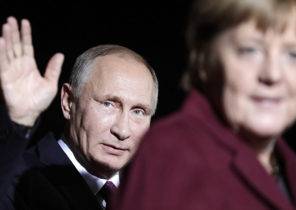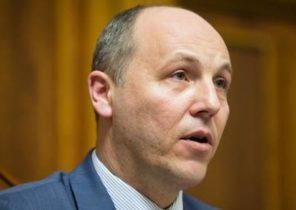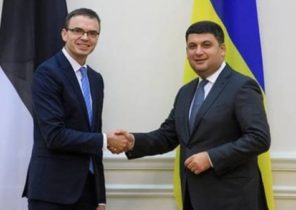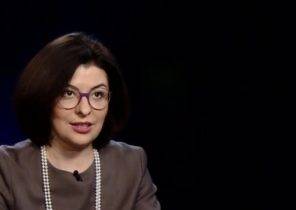The giants of the oil market are in for a surprise, according to the latest statements of the leaders of OPEC+ Saudi Arabia and Russia. The current approach of OPEC+ is not the ideal solution, as long as oil stockpiles are high and demand is low, the oil markets will not see a full recovery.
In this regard, Moscow and Riyadh should find a lasting solution, if they want to see a real recovery in oil markets. If this does not happen, the possible gap between Saudi Arabia and Russia. This is stated in the report published on the website of the American Oil price.
The report author Cyril Widdershoven writes that the official views adopted by the Joint Ministerial monitoring Committee of OPEC+ (JMMC) in the last few days, was regarded as a positive sign, since in August there will be a relaxation of the conditions of the agreement to reduce oil production amid expectations for growing demand for oil.
Energy Minister of Saudi Arabia Prince Abdulaziz Ibn Salman does not exclude the scenario in which the agreement on oil production OPEC+ will be extended until the end of 2021, or until the beginning of 2022.
According to Widdershoven, this news has not yet digested by the markets, but already demonstrates the possibility of a split in views in the group OPEC+. Moreover, he pointed to the fact that the statements of Prince Abdulaziz bin Salman regarding the oil market contrasts with the statements of the Minister of energy of Russia Alexander Novak.
On Wednesday Novak said that starting in August, the slow reduction of oil production group OPEC+ to 7.7 million barrels per day is justified and fully consistent with the current situation on the market. Thus, he demonstrated that the views of Russia in regard to the possible increase in global demand for oil and oil products more than optimistic.
For its part, Saudi Arabia has absolutely made it clear he did not want to face a possible economic recovery in the shape of the letter “W” and the second wave of coronavirus. At least this is the official message of the Kingdom. The basic idea can be more diffuse and cause internal debate in OPEC+, and this, in turn, can lead to the fact that Saudi Arabia refuses to comply with the terms of the agreement to reduce oil production.
Possible disagreements
Great oil strategy in Saudi Arabia has been criticized even within the country, because revenues from oil exports continue to decline. Official data provided by Riyadh and is a Joint initiative of statistics on oil (JODI) show that the total amount of oil exports from the Kingdom, including oil and oil products in may declined to 7.48 million barrels per day against of 11.34 million barrels per day in April. It is also reported that exports in June and July may be even lower. The same thing can threaten Russian oil production.
According to Widdershoven, the oil market remains in a precarious position, despite the fact that OPEC members+ periodically deny this fact. Meanwhile, the results of the monthly meeting of the JMMC show a growing desire of Russia and some other members of OPEC to mitigate the current agreement on the reduction of oil production.
The power struggle within OPEC+ is masked by the exchange of courtesies in the media. Meanwhile between Moscow and Riyadh brewing conflict that could escalate into a new price war. According to Widdershoven, currently there is no risk of a resumption of a price war, but Riyadh has been tired of carrying the brunt of the decline in oil production, all still trying to keep its economy afloat.
World media have shown a lack of critical analysis of major developments within OPEC+. The current weakness of the production is a sign of blind faith in the global recovery in the coming months.
Their faith rests on shaky foundations, since the second wave COVID-19 has already begun to gain momentum. However, OPEC, Russia and its allies decided to change their relatively successful strategy from 1 August 2020.
The fragile compromise
In order to reduce the risks associated with the emergence of a new internal crisis, the war for dominance in the oil market or a price war directly between the crown Prince of Saudi Arabia Mohammed bin Salman and Russian President Vladimir Putin, was offered a rather shaky compromise. It is currently expected that the world oil market will be shortage of raw materials, which will complete the period of accumulation of reserves in the storage tanks. Moreover, 2021 OPEC plans to increase total production by 6 million barrels per day.
Nevertheless, the prospects for real economic recovery remain low. Even in your own report, OPEC warned that oil markets will remain balanced, especially if the second wave covid-19 will slow down the global economic recovery. Wedershoven explained that OPEC’s decision+ to reduce or increase oil production is a unilateral decision. But the real problem is that other oil producing countries may follow suit.
In addition, there is the likelihood of the next “shale boom” in the United States. A further increase of oil production by OPEC countries+ will lead to a growing glut, as other oil-producing countries will not feel obliged to meet obligations to reduce oil production, but instead will fight for their market share.
In the end, Widdershoven concludes that the current delicate balance between supply and demand can easily turn into a glut. The store is still crowded, however, began to show the negative signs of the real economic impact of coronavirus in Europe, especially with increasing numbers of bankruptcies and unemployment.






